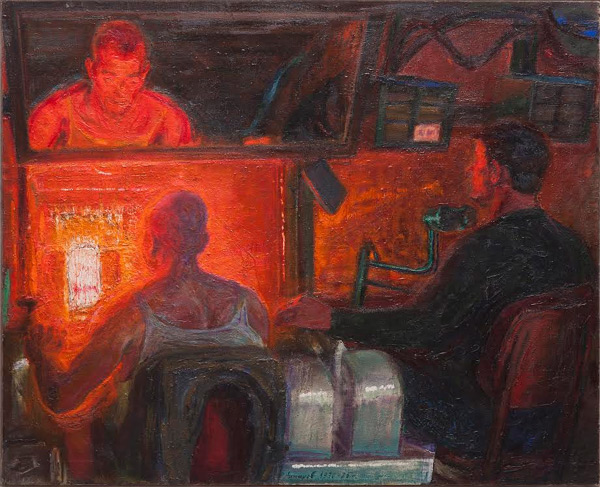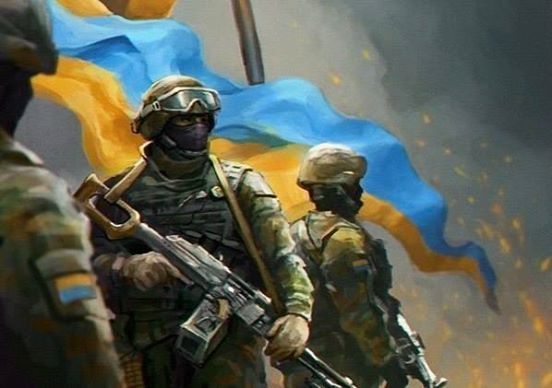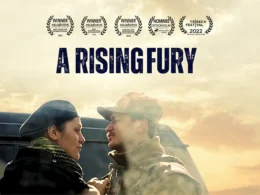The pictures of the Donbas we see every day on television are horrible and frightening. And it is not just the ongoing shooting and fighting, that has not stopped even under a ceasefire, that is the cause of the fear and horror.
The issue of government negligence with regard to the economic and cultural development of specifically this region did not just suddenly appear recently, nor did it materialize in just the past year. The policy of pitiful government neglect in this region has been willfully promoted and deliberately planted in the public’s consciousness for well over a decade, leading to tragic consequences for the whole country.
In all these years, not a single Ukrainian cultural institution, neither public nor private, was at all concerned with the state of interregional relations and cooperation in the Donbas. The issue of regional identity was raised only in political platforms, in ongoing political speculation, and the consequences of this strategy will be felt for a long time to come.
The problem with the Donbas, which does not see its future within the framework of Ukraine, is mainly a mental problem, a problem of culture. Thus, a solution to the problem can only be found through communication within the context of cultural events.
The only trouble is that at a time of open military conflict, the question of culture (add to this that culture is not a top priority for the Ukrainian government anyway) is being pushed even further out of the picture. A lot of exceptional and practical projects initiated by various art institutions have gone out the window because providing aid to ATO forces, the Ukrainian Army, the wounded and disabled soldiers, the victimized and the displaced has become the focus of attention.
In order to be able to address all the consequences of war and work effectively with regional authorities, it is important today to already identify exactly what it was that had made it possible for the current scenario to develop, how to transform the chasm that exists within the population for the future, and how to stop similar notions and feelings from proliferating in other regions.
In the summer of 2014, the Donbas region saw the founding of the Auction House KORNERS, a commercial enterprise with completely unrelated official goals yet wholly dependent on the cultural community. AH KORNERS has introduced an initiative in the cultural sphere. By bringing in activists from various art disciplines, they have launched an organization that in cooperation with the official government departments of multiculturalism and multi-ethnicity would tackle the policy of isolationism that exists among regions.
The DONCULT National Forum is the first event to address the problem
From October 28 through to November 11, the Spiritual Treasures of Ukraine museum will sponsor an exhibition of Donbas artists to familiarize the public with the culture of the Donbas. Music, film, literature, painting and theater arts will demonstrate what the Donbas has to offer besides factories, coal mines and the Soviet myth.
Intellectuals from the Donbas region will give lectures and chair round table discussions that will give everyone a chance to talk about shared problems and try to understand the problems as they look from another side.
“Ukrainian Truth. Life” will join the DONCULT initiative and in the next month will publish articles about culture and the distinctiveness of those who live in the Donbas region.
The first article about us to appear in the new section will feature an interview with the founder of AH KORNERS and initiator of the forum, Olha Sahaidak.
“Olha, in what way can the DONCULT Forum help Donbas?”
Olha: “It can support our ideas. Today I had a meeting in Obukhiv. Driving along the road I passed a sign that said, ‘Luhansk 747 km.’ And that distance, those 700 km, separates me from the war zone. There I was, driving my car in comfort, listening to music, the weather was fantastic, the surroundings were beautiful, I am doing well, doing interesting and exciting things. And 700 km from me life is radically different. Militants wearing unfamiliar uniforms are shooting at peace-loving citizens.
Right now the only way to change anything there is with guns. There the muses are most likely kept busy either shooting or dying.
In those places where things are relatively calm it is important to continue to examine, to review and discuss the things that are going on, to talk through the trauma and think about what mistakes were made and how they can be avoided in the future.”
“Could it be already too late to try to fix the problems, keeping today’s circumstances in mind?”
Olha: “It is never too late to fix problems. Talking about existing problems and working to minimize them is simply of the utmost importance in today’s circumstances.
Yes, perhaps we will be unable to improve the conditions my generation has to live under but there are young people! We have plans to work with them a lot, and that includes with the displaced people, too, so that young people will learn to think independently instead of simply parroting the circulated myths and stereotypes! So that they will grow up cognizant of the significance and depth the cultural heritage their region and country has. It is critically important that they be aware. For us it doesn’t matter as much.”
“And what if the residents of Donbas find other things absolutely more important than cultural issues?”
Olha: “Yes, of course that is possible. But there are things of universal value that one should be aware of and value firstly. I am talking about musical, literary and artistic works and the people who created them. Ideally, our region should be recognized precisely for those renowned individuals.
Nowadays, though, other people are in the limelight: a lot of names are well known to us but often we don’t even suspect that they are somehow connected to Donbas.”
“Whom do you have in mind, for example?”
Olha: “For example, Serhi Zhadan. When you mention his name any young person who reads books will say, ‘He’s from Kharkiv.’ But he was born in Luhansk Oblast. Ivan Karabyts, the artistic director of ‘Kyiv Camerata’ hails from the Pervomaisk region in Donetsk Oblast.
If we dig deeper we see that there have been exceptional people from every generation connected to this region: Volodymyr Sosiura and Vasyl Stus in literature, in the visual arts, there are Serhi Hrehoriev, Petr Konchalovsky, Arkhyp Kuinkzhi, and in music - Sergei Prokofiev.”
“How would you describe the mission of the forum ‘Doncult’?”
Olha: “When the idea first occurred to us we had in mind a thoroughly practical goal. It was at the moment that ATO forces were advancing eastward and there was great hope that the war would soon be over, cities would be liberated and that we would be ready to provide effective aid to the cultural institutions that had suffered as a result of the war.
We had counted on drawing on various methods to help those museums in the Donbas that had suffered losses in the war. We had hoped for the best.
But the situation turned out to be different, and we had to adjust our goals without relinquishing the original goal but postponing it further into the future.
Currently our main goal is to provide a platform for communication and to build connections within the region, to intervene in future attempts at keeping specific regions isolated. The forum has already attracted people from entirely different branches of culture. Right now it is crucial that they get to know one another on a friendly basis. And the process has been set in motion.
As a result of our work we have concluded that this project which had been launched with a specific goal in mind will facilitate the development of a charitable fund that will be used for the implementation of similar ventures that expose regional cultural features.
We started our work in the Donbas, but other regions have problems, too. We know very little about ourselves and about others.
We have to start plotting programs in rehabilitation and cultural events. Of course it will be necessary to introduce our programs as soon as the active phase of the war is over and the status of regional jurisdictions is established. The strategy has to be worked out already today, all the connections and processes have to be coordinated and ready to be implemented. So that the earlier we prepare ourselves for this the better it will be.”
“How do you intend to get funding?”
Olha: “This project is our gift to society and we would like to see as many people as possible attend the forum. Admission is free. We want students to attend, school pupils, pensioners, parents with children. All those people who want to know the reasons and consequences of the events that have taken place in the eastern part of the country.
We will not be charging admission. We are only counting on donations the amount of which each individual will decide for himself.
After attending our event if a person liked what he saw he will carry a treasure inside and sometime in the future he might feel inclined to support a similar cultural project or he might even want to work on strategies and programs directed at avoiding similar disasters and humanitarian catastrophes in the future.
Once the forum gains recognition and support from the community we will work to gain funding from various institutions, foreign donors, companies, businessmen and private individuals.
In the meantime in preparing for this event we are relying solely on our own resources. There are, in addition, a few exceptional individuals who expressed their desire to help as much as they are able to for the simple reason that they have faith in us and like we have faith in the ensuing improvements that events like this can stimulate.”
“Tell us a bit about the program and the participants in the forum.”
Olha: “A really full program is shaping up.
First of all, I would like to say that we have sound support from the community, a positive response along with a desire to participate and to volunteer help. As far as there being a need for events like this particularly at this time there exists a united position among the majority in the art community. And that is very inspiring.
My only regret is that we didn’t have a chance to get in contact with and to work with the group IZOLIATSIA. It is a unique institution committed to supporting and advancing contemporary art – there is no other like it – not only in Donetsk, but in all of Ukraine. We had counted on their participation but they are presently busy with their projects in Kyiv. Nevertheless we hope someday to see them among our guests participating in the round table discussions.”
Picture: Alexei Limarev, “Operating the Bluming Furnace,” 1970-1985





